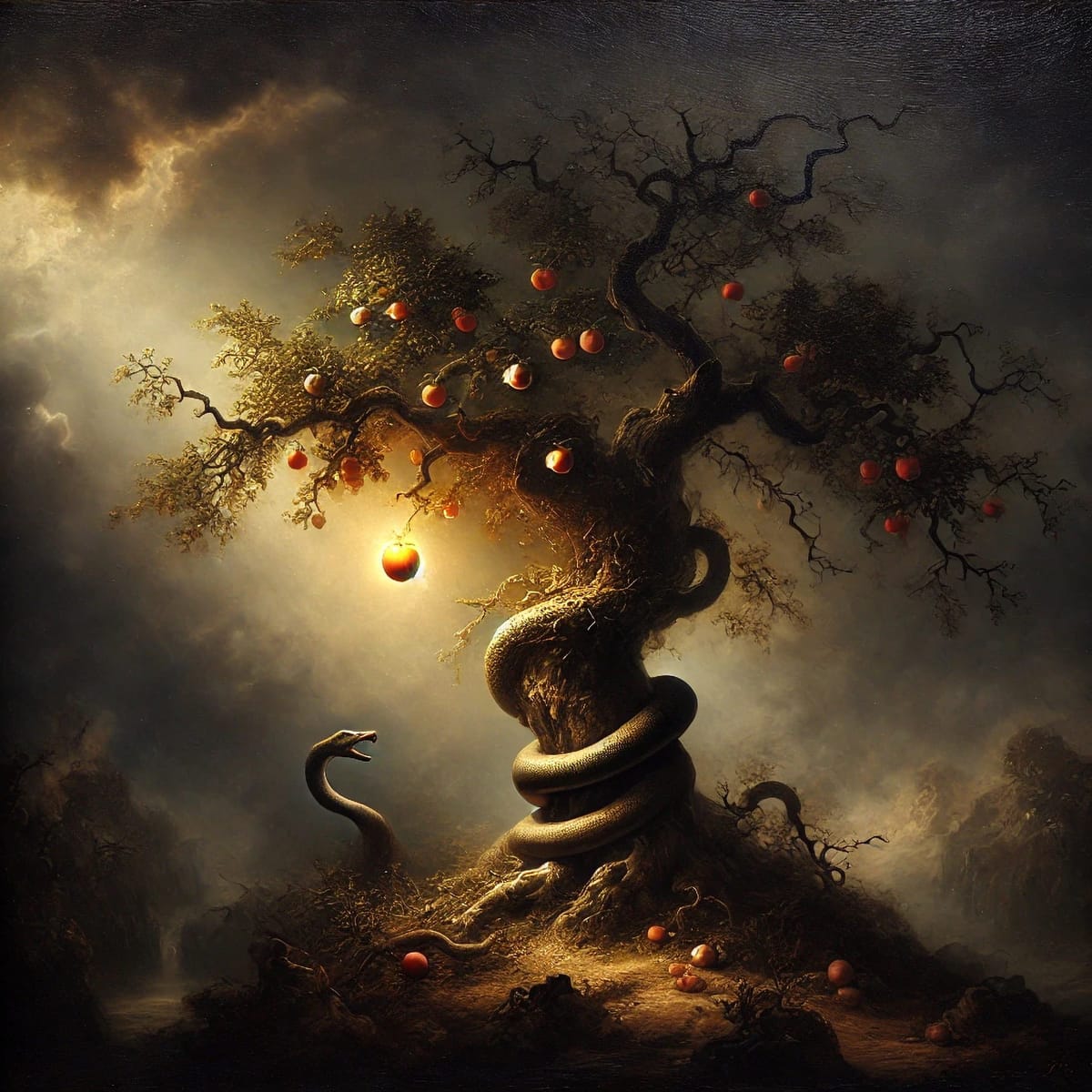What Is the “World”?
I returned last evening from visiting one of the largest Anabaptist colonies in the world, a community that has functioned almost as a nation unto itself for about 100 years. This society, insulated from worldly politics and free to pursue its faith and aspirations, could provide a compelling vision

Greetings once again, brothers and sisters.
I returned last evening from visiting one of the largest Anabaptist colonies in the world, a community that has functioned almost as a nation unto itself for about 100 years. This society, insulated from worldly politics and free to pursue its faith and aspirations, could provide a compelling vision of what the future of Christianity might practically look like—enclaves of counterculture within nations across the globe. Their intentional separation and lifestyle resonate with our discussions about the emerging shape of Christianity in the future. Yet, despite the impressive scale and success of this colony, I was deeply troubled by the evident presence of sin, division, and burgeoning worldliness.
This community has endeavored to separate itself from the world in every conceivable way—through distinct dress, living arrangements, language, and economic practices, avoiding any entanglement in secular governance. Yet, despite these efforts and their location outside the United States, speaking a different language and clinging to tradition, they face what seems like a losing battle against encroaching worldliness. The older generations feel desperate, grappling with questions about how to counteract this infiltration of sin. Raucous living, alcohol, immorality, and extreme violence are becoming increasingly prevalent in their midst.
This paradox raises a profound question: How can a community so focused on separating from the world and so physically and visibly distinct from mainstream society become a breeding ground for the very excesses of worldliness they oppose? How can those most dedicated to physical and cultural isolation from the world’s influences find themselves overwhelmed by those very influences they sought to escape? And this begs a bigger question: What is the world?
This question became particularly poignant during a conversation I learned of between a former Amish man and a current member of that tradition. The current member asked, “How does it feel to be dressing more like the world these days?” The man being questioned, recently baptized in the Holy Spirit, had discovered joy and unity in Christ, unlike before. He still dresses modestly and conservatively but not in the stringent styles of his previous community. This exchange raised a critical question for all of us: What exactly defines the “world,” and between these two men, which one is truly more of the world and dressing more like it?
We often hear the term “the world” in Christian circles, and it’s tempting to define it by the most glaring outward expressions of secular culture—the gaudy fashions, greed-driven materialism, the indulgence in immoral entertainment. But is that all there is to the “world”? Could our understanding of “the world” be confined to superficial symptoms while the true essence runs much deeper and remains obscured? Could it be that the Anabaptist community is engaged in a largely futile struggle, attempting to combat the “world” with the “world”?
Biblical Warnings about the World
Scripture offers stern warnings about “the world”:
- “Do not love the world or anything in the world.” (1 John 2:15)
- “Anyone who chooses to be a friend of the world becomes an enemy of God.” (James 4:4)
- “This world in its present form is passing away.” (1 Cor. 7:31)
- “You do not belong to the world, but I have chosen you out of the world.” (John 15:19)
- “My kingdom is not of this world.” (John 18:36)
These passages underscore the seriousness of the matter. Yet they also repeat our pressing question: What exactly constitutes “the world” we are to avoid? Is it sufficient to avoid the most overtly sinful behaviors or the most visible similarities to modernity, or is there something more insidious at play?
Most Glaring Expressions
When we think of worldly expressions, our minds perhaps rightly leap to things like:
- Fashion: The pursuit of image and self-expression that so often preys on insecurities and destroys contentment.
- Education: The secular ideal of molding perfect individuals through “enlightened” knowledge while disregarding God’s design and purpose.
- Economy: Systems built on envy and rivalry, promising happiness through consumption and status but always leaving people dissatisfied.
- Science: The reverence of science not as a method of understanding the world but almost as a sentient entity with unquestionable authority.
It’s easy to look at these categories and recognize their worldly nature. But does merely rejecting these outward expressions get to the heart of the matter? Is avoiding fashion trends or rejecting secular education really enough to “come out of the world”? The more we consider this question, the clearer it becomes: the “world” is something much deeper and more pervasive than these surface-level issues.
Human Society: A Product of the Carnal Mind
The Bible tells us that everything in the world comes from three sources: “the lust of the flesh, the lust of the eyes, and the pride of life” (1 John 2:16). These are the same desires that appeared at the very beginning with Adam and Eve. In the Garden of Eden, they saw that the forbidden fruit was “good for food” (it appealed to their physical appetite), “pleasing to the eye” (it looked attractive), and “desirable for gaining wisdom” (Gen. 3:6). They gave in to temptation because they wanted to be like gods—the ultimate act of pride.
Their mistake wasn’t just about eating the forbidden fruit but about choosing to go their own way and seek knowledge without God. By eating from the “tree of the knowledge of good and evil,” they tried to gain wisdom independently of their Creator. This choice started a new, corrupt way of living based on human reasoning without a close relationship with God.
From that point on, people’s natural minds began to shape the world, trying to make sense of life without involving God. The ancient Greeks had a word for this: kosmos, which means “order” or “arrangement.” It came to describe the physical universe and human society organized by human intellect (nous). They believed that human intelligence alone could bring order out of chaos without God’s help. This thinking fulfilled the promise from Eden that humans could be like gods. This human-made order, called kosmos, is what the New Testament writers urge Christians to reject and turn away from.
The Foundation of the World: A Counterfeit Order
Before the ancient Greeks, Cain was the first person to show this “world” organized by human desires and thinking. After Cain killed his brother, Abel, he became a pioneer by building the first city. This was his way of dealing with the punishment for his sin. In the Bible, Jesus refers to Cain’s actions as “the foundation of the world” (Luke 11:50–51). This marked the start of human society built on violence, jealousy, and self-promotion—the harmful results of following our own selfish minds. A thinker named René Girard explains that all civilizations since then have been built on similar acts of violence.
So, when we talk about the “world,” we’re not just talking about people’s actions or cultural habits. We’re referring to a mindset—a way of thinking that tries to create order without relying on God. This mindset can show up in obvious sins, but it can also be hidden under respectability or even in religious practices.
Up to now, we see that the “world” the Bible warns us about is human society led by our natural human thinking, not by the Spirit of God. Anything that comes from our own understanding—without the anointing of the Holy Spirit—is what the Bible calls the “world.”
Can the World Be Escaped?
What, then, is the solution? Should we create more rules, respond in fear to the world’s grotesque excesses, or seek refuge in being different for difference’s sake? Should we run and hide? No—the answer lies in repentance. We must cut down the tree of knowledge that takes root in each of our hearts, laying the ax at the root of human pride. We must embrace a vibrant, dynamic, and risky walk of faith under the daily guidance of the Holy Spirit—speaking directly to our hearts, through the anointed Scriptures, and within the anointed fellowship of the body of Christ.
The apostle Paul clearly delineates the path to escaping worldly influences: “Do not conform to the pattern of this world, but be transformed by the renewing of your mind” (Rom. 12:2). This directive reveals that the patterns of the world are entrenched in the natural mind, and only through its renewal by the Holy Spirit can we hope to break free. Our usual tactics—reactions, fears, measures, principles, conclusions, or doctrines—are merely new sprouts from the old tree of knowledge. “It is the Spirit who gives life; the flesh profits nothing” (John 6:63). True freedom arises when we stand in raw, vulnerable obedience to the Spirit, depending on divine anointing rather than on rationalized conclusions that “teach as doctrines the commandments of men” (Matt. 15:9).
This inner transformation produces genuine godliness—the fruits of the Spirit: love, joy, peace, patience, kindness, goodness, faithfulness, gentleness, and self-control (Gal. 5:22–23). These cannot be manufactured through human effort or imposed through regulations; they flow naturally from a life surrendered to the Spirit.
Walking by the Spirit Is Humbling
“Walk by the Spirit, and you will not gratify the desires of the flesh. For the flesh desires what is contrary to the Spirit” (Gal. 5:16–17). Walking by the Spirit is challenging. It’s tempting to prefer a rulebook that absolves us from the responsibility of discerning God’s will through prayer. While Scripture sets clear boundaries with consequences for crossing them, much of our spiritual journey involves “trying to find out what pleases the Lord” (Eph. 5:10).
Even the mature apostle Paul aimed to go to Asia but encountered closed doors; he tried to enter Bithynia but was stopped by the Spirit of Jesus. Eventually, following a vision, he went to Macedonia. We must not be ashamed of our learning stages—times when we think we understand God’s guidance only to discover we were mistaken. We must hone our senses to discern good and evil, a discernment that must be guided by the Holy Spirit to be of any value.
Years ago, when we faced challenges in upholding outward holiness in our apparel, some concerned folks suggested to my father, “With all these new styles and constantly changing trends, wouldn’t it be simplest just to offer three godly dress patterns for our folks to choose from?” My father replied somewhat sarcastically, “Yes, that would be easier. And why don’t we throw out the Holy Spirit while we’re at it?”
This exchange reveals a fundamental difference in approaches to combating worldliness. One relies on inner spiritual change; the other attempts to corral an unrepentant heart with outward constraints.
The Worldly Mind in Religious Garments
The most dangerous form of worldliness isn’t found in gaudy fashion or secular philosophies. It’s when Christianity adopts the same carnal mind and dresses it in religious language and customs. Paul warned the Corinthians that suppressing the Spirit’s gifts would lead them back to the paganism they left behind—the worship of “mute idols” (1 Cor. 12:2). A Christianity that replaces the Spirit’s leading with rules, traditions, and philosophies is no different from the “world” it claims to oppose; it becomes a religious expression of the same carnal mind.
True godliness cannot be manufactured. The fruits of the Spirit cannot be imposed through “Do not handle! Do not taste! Do not touch!” regulations (Col. 2:21–23), which “have an appearance of wisdom... but lack any value in restraining sensual indulgence” (Col. 2:23). Any effort to produce these fruits without the Spirit’s power is merely another journey into the world. Only God can produce the outward expressions of genuine godliness through the internal work of the Holy Spirit.
What Is the World?
So, what is the world? To repeat—it is everything ordered by and the product of the natural mind—whether gaudy or plain, religious or irreligious, grand or small, old or new, traditional or modern. It’s everything not inspired and ordered by the Holy Spirit—the product of the tree of knowledge. This is why Paul tells us that the only sure way to know we are escaping the world is to see the power of the Spirit present in our lives and communities.
“Now the Lord is the Spirit, and where the Spirit of the Lord is, there is freedom” (2 Cor. 3:17). We must allow ourselves to be “transformed into His likeness with ever-increasing glory” (2 Cor. 3:18), as we are “renewed in the spirit of [our] minds” and “put on the new self, created to be like God in true righteousness and holiness” (Eph. 4:23–24).
The mind is the battleground; unless we allow it to be renewed by the grace and power of the Holy Spirit, everything we undertake—whether religious or secular, grand or modest, conservative or liberal, fearful or bold, modern or traditional—will simply manifest more of the world. This happens because the un-anointed human mind continually strives to impose order on chaos. Yet true peace and order can only be achieved through the power of the Holy Spirit. Anything else is merely a counterfeit that inevitably leads to a dead end.
True godliness begins within, where the Holy Spirit plants love, humility, and simplicity in the heart, flowing naturally into every part of life.
Conclusion: Embracing the Power of the Holy Spirit
In conclusion, while the Anabaptists of the past were able to withstand certain expressions of worldliness through rigid principles and traditions, these perilous times demand more. “We do not wrestle against flesh and blood, but against... spiritual forces of evil in the heavenly realms” (Eph. 6:12). In such a battle, religious principles and traditions alone are no match.
Simply put, the person who imposes on himself a rigid lifestyle and principles that flow not from faith or the anointed inspiration of the Holy Spirit but from the reasoned “principles” of religiosity and tradition embodies and expresses the world. The true antidote to the world is a walk of faith in the power and presence of the Holy Spirit. Everything else will ultimately fail.
May God deliver the religious from their worldliness—their natural-mindedness—and bring them into the reality of the numinous presence and power of the God who works miracles among us and provides us with the Holy Spirit.
“‘Not by might nor by power, but by My Spirit,’ says the Lord Almighty.” (Zech. 4:6)
In His grace and truth,
Asahel Adams





